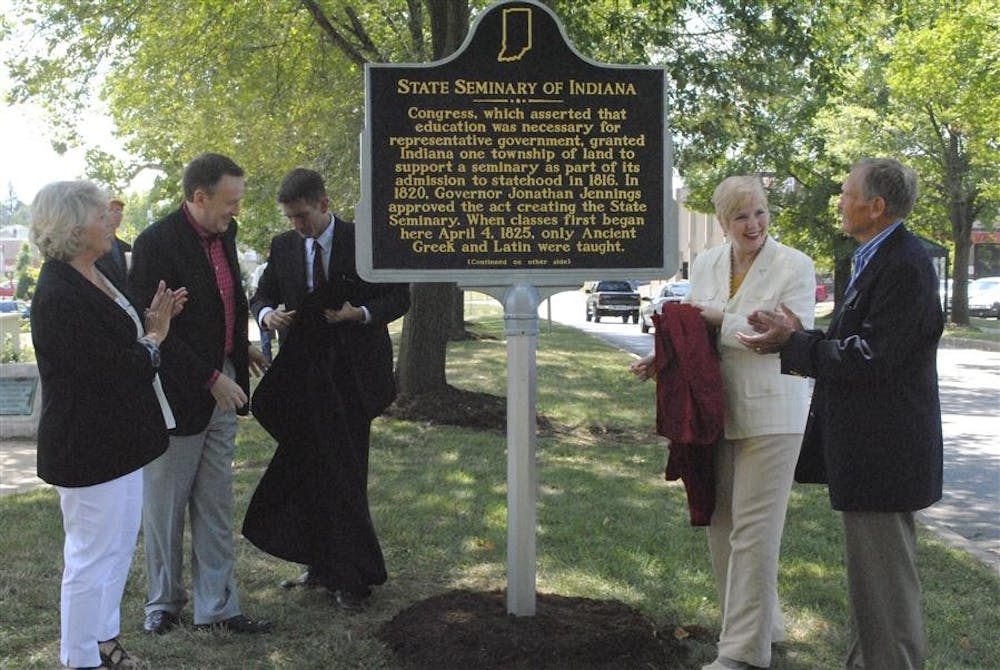IU’s birthplace at Seminary Square Park was honored with a historical marker Friday.
The University’s original 11-acre location was on the site of what is now Seminary Square Park.
The event featured the mulching of a tulip tree, Indiana’s state tree, to symbolize the effort to replace hundreds of trees lost during heavy winds in the spring, said Karen Hanson, IU Provost and Executive Vice President.
The Bloomington Parks Foundation is working to replace trees in the park and around the city.
Stephen and Connie Ferguson, long-time Bloomington residents, have begun this effort by purchasing 100 trees for the city. The Fergusons have extended their efforts by donating 150 trees to replace those lost on the IU campus.
Mayor Mark Kruzan, an IU alumnus, called Friday’s occasion a celebration.
“This is fun,” he told the dozens of attendees. “I love this kind of event.”
Jeremy Hackerd was the state historical marker program manager during the three years the site’s application was submitted and reviewed.
He said the site is part of the Indiana Historical Bureau’s historic marker program and is not on the state’s register of historical places.
The historical marker program and historical places register are not related programs.
To become a historic marker, the bureau must decide the application’s subject had a significant impact on Indiana’s history, Hackerd said.
There are about 500 historical markers in Indiana, and this new marker makes nine in Monroe County, according to an IU press release. Historical markers honor noteworthy events, people, groups and locations in Indiana history.
“Indiana’s founders showed remarkable wisdom when they called for the establishment of a system of education,” Hanson said in the release.
“The historical marker at Seminary Square Park will celebrate the close ties between IU and the Bloomington community — rich and varied connections that have endured for nearly 200 years and will continue to prosper.”
IU’s birthplace receives state historical marker

Get stories like this in your inbox
Subscribe





